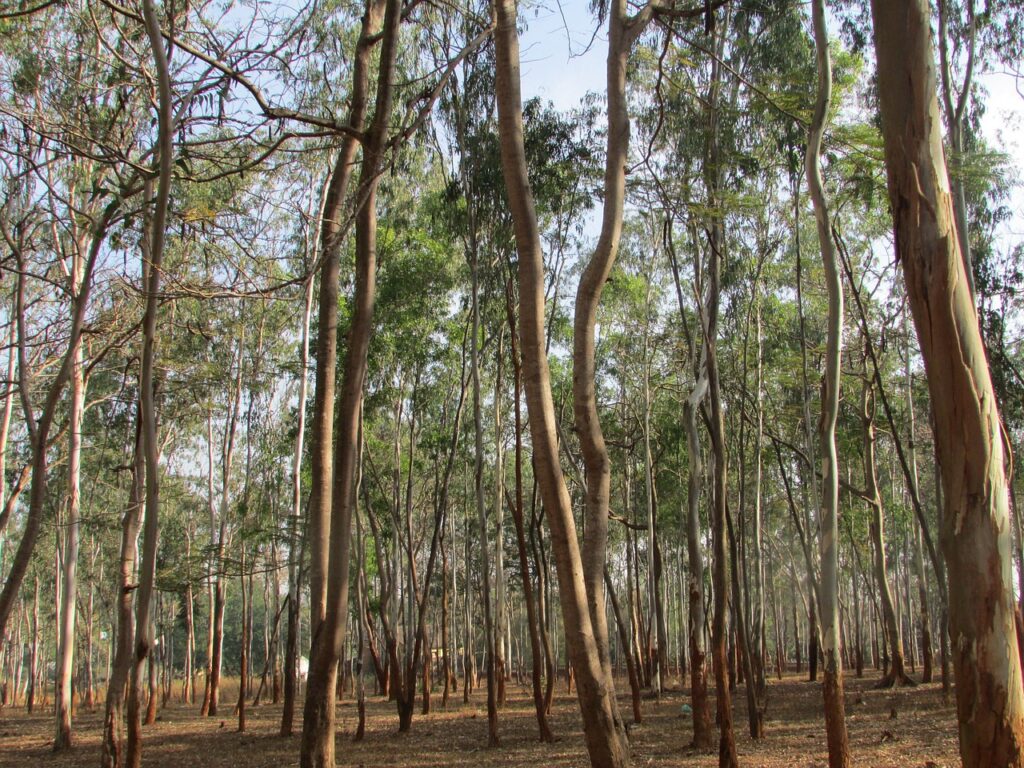By Antii Kivivalli. Eucalyptus trees are native mostly to Australia, but as they seem to grow well and fast and provide therefore an effective source of raw material for the pulp and paper industry, they are widely cultivated in the tropical and temperate world. That means all over the warmer parts of Americas and Europe, Africa, the Middle East, southern China, and the Indian subcontinent.
So far so good, but naturally nothing comes without a negative side effect. Eucalyptus trees for example are effective in taking water in and evaporating it in the air. That is not bad in itself and eucalyptus trees can and have been used to drain swamps and thereby reducing malaria spreading mosquitos! But there are also cases where the groundwater level seems to have dropped due to dense forests of eucalyptus trees.
And now they have developed genetically engineered variations of the tree. Yes, to grow even faster, but to be also more resistant to herbisides. One can surely ask why and be cautious about the goals and methods of practices where millions of hectares are being planted with a single variety of a tree. That is not ecological.
Profit Trumps People and Planet in Brazil’s Eucalyptus Industry


The practice of planting Eucalyptus indiscriminately has already caused groundwater depletion in many places in India. This is akin to monoculture and is very unscientific.